Justin O. Frosini
Director
Justin O. Frosini is Director of the Center for Constitutional Studies and Democratic Development and an Adjunct Professor of Constitutional Law at Johns Hopkins University's School of Advanced International Studies (SAIS). He is also Associate Professor of Comparative Public Law at Bocconi University. Prof. Frosini is the co-coordinator of a research group of the International Association of Constitutional Law devoted to Constitutionalism in Illiberal Democracies and he is a member of the Advisory Board of the Max Planck Encyclopedia of Constitutional Law published by Oxford University Press. Frosini has been a visiting professor at the Inter-American University of Puerto Rico and at the University of Victoria, BC, Canada where, in 2010, he was awarded the European Union Centre of Excellence Visiting Scholar Grant. Since 2003 he is the co-director of the Summer School European Union and Legal Reform held every July in Igalo, Montenegro. Frosini was also a member of a group of seven international scholars conducting case studies for a 5-year project on Constitutional Design and Conflict Management in Africa funded by the U.S. Department of Defense.
Prof. Frosini is the author of a ground-breaking book on the legal value of constitutional preambles for which he received an Excellency in Research Prize from Bocconi University in 2013. He has published copiously in English and Italian in the field of comparative constitutional law with particular attention to federalism, regionalism and devolution, Brexit and the European Union, constitutional justice and forms of government. His most recent publications include The Brexit car crash: using E.H. Carr to explain Britain's choice to leave the European Union in 2016, in Journal of European Public Policy, Vol. 27 (5) 2020, 761-778 (co-authored with Mark Gilbert); Dalla Sovranità del Parlamento alla Sovranità del Popolo, La rivoluzione costituzionale provocate da Brexit, Wolters Klewer - Cedam, Padova, 2020; Comparative Constitutional History Volume One: Principles, Developments, Challenges, Brill, Leiden, 2020 (co-edited with Jason Mazzone and Francesco Biagi); The Making of Constitutional Preambles, in H. Lerner, D. Landau (eds), Comparative Constitution-Making, Edward Elgar Publishing, 2019, 341-361 and Splendid Isolation or Open to the World? The Use of Foreign Law by the UK Supreme Court, in G.F. Ferrari (ed.) The Use of Foreign Law by Constitutional and Supreme Courts, Brill, Leiden, 29-68.
Frosini is a regular media commentator and he writes a trimonthly report on constitutional matters in the United Kingdom for Quaderni costituzionali one of Italy's leading constitutional law journals. He received his PhD in constitutional law from the University of Bologna.
Contact: jfrosini@jhu.edu
Research Fellows
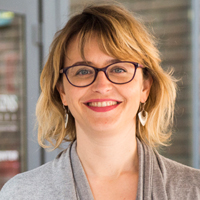 Sara Pennicino
Sara Pennicino is a Senior Affiliated Research Fellow at the Center for Constitutional Studies and Democratic Development, Adjunct Professor of International Human Rights at the Johns Hopkins School of Advanced International Studies (SAIS) Europe and Associate Professor of Comparative Public Law at the University of Padua. Pennicino completed her PhD in Comparative Public Law (2008) at the University of Siena and was then awarded a one-year postdoctoral fellowship at the University of Bologna's School of Law. In the meantime, she became a member of the Center for Constitutional Studies and Democratic Development (CCSDD) where to date she holds the position of Senior Affiliated Scholar. She is the author of a book on the use of the concept of legal reasonableness in the case law of the US Supreme Court and of numerous articles published in Italian and international law reviews regarding constitutional adjudication in common law systems and elections. Her research areas include electoral management in transitional and post conflict countries, systems of electoral justice, constitutional ban on political parties and constitutional eternity clauses. Sara works with the Center of Excellence for Stability Police Units (COESPU) training Italian and third country members of security forces with specific regard to human rights and policing, security and elections-related violence and humanitarian law.
Contact:
spennicino@jhu.edu
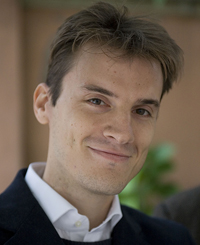 Francesco Biagi
Francesco Biagi is an Affiliated Research Fellow at the Center for Constitutional Studies and Democratic Development, as well as a Senior Assistant Professor of Comparative Public Law at the Department of Legal Studies of the University of Bologna. From October 2015 to January 2017 he was a Senior Research Fellow at the Max Planck Foundation for International Peace and the Rule of Law (Heidelberg), where he now works as a legal consultant. Biagi obtained a Ph.D. in Constitutional Law from the University of Ferrara after graduating in Law from the University of Bologna. In 2015, 2017, 2018, 2019, and 2020 he was Visiting Professor at the College of Law of the University of Illinois, and in 2012 he was Visiting Scholar at the Benjamin N. Cardozo School of Law, New York City. He is the Coordinator of the Sub-Group on
Africa of the International Association of Constitutional Law (IACL) Research Group on
Constitutionalism in Illiberal Democracies. He has written extensively on transition processes, constitution-building, forms of government, constitutional justice, fundamental rights, federalism, electoral justice, hybrid and illiberal regimes. His latest books include
European Constitutional Courts and Transitions to Democracy (Cambridge University Press 2020),
Comparative Constitutional History. Volume 1: Principles, Developments, Challenges (edited with J.O. Frosini and J. Mazzone, Brill 2020), and
Political and Constitutional Transitions in North Africa: Actors and Factors (edited with J.O. Frosini, Routledge 2015). He presented his works in many national and international conferences. Languages: Italian, English, Spanish and French. In 2017 he obtained the National Scientific Qualification to become Associate Professor of Comparative Law.
Contact:
fbiagi@jhu.edu
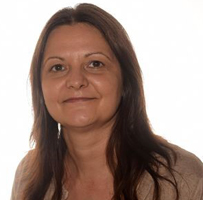 Carna Pištan
Carna Pištan is an Affiliated Research Fellow at the Center for Constitutional Studies and Democratic Development and a Marie SkÅ‚odowska-Curie Global Fellow at the
Harriman Institute, Columbia University (US) and the Institute for Comparative Federalism,
Eurac Research (Italy). Previously, she was an Adjunct Professor at the University of Udine, and a Postdoctoral Research Fellow in Comparative Public Law at the University of Udine (2016-2019), and University of Bologna (2010-2016). Pistan obtained a Ph.D. in Constitutional Law from the University of Bologna after graduating in Political Science from the University of Trieste. She is the Coordinator of the Sub-Group on Eastern Europe and Eurasia of the International Association of Constitutional Law (IACL) Research Group on Constitutionalism in Illiberal Democracies. From 2013 to 2019 she was the Main Researcher for the CCSDD project on "The Role of Constitutional Courts in the Challenges to Democratization and the Protection of Human Rights in Central Asia", funded by the Center for the Study of Democratic Institutions, LA. She is the author of several book chapters and articles focusing on democratic transitions, constitutional justice, hybrid regimes, illiberal constitutionalism, nationalism, collective memory and national identity, with particular reference to Central and Eastern Europe and former Soviet Union sphere, and the author of the monograph "Between democracy and authoritarianism: experiences of constitutional justice in Central and Eastern Europe and post-Soviet Union countries" (BUP, 2015, in Italian). She is currently working on the project: "Illusions of eternity: the Constitution as a
lieu de mémoire and the problem of collective remembrance in the Western Balkans" that has received funding from the European Union's Horizon 2020 research and innovation programme under the Marie Skłodowska-Curie grant agreement No 898966.
Contact:
cp2910@columbia.edu
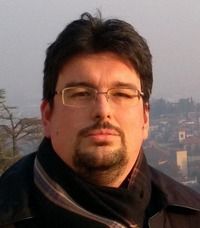 Marko Milenkovic
Marko Milenkovic is an Affiliated Research Fellow at the Center for Constitutional Studies and Democratic Developmentand a Research Fellow at the Institute of Social Sciences Belgrade (Centre for Legal Research). Marko has a PhD from the University of Belgrade and LL.M. from the University of Cambridge. He has been associated fellow at SAIS from 2016 - 2019, visiting postdoctoral fellow at the University of Bologna – International Research Center for European Law (CIRDE) in 2015/2016 and 2016/2017 as well as visiting researcher at Europa Kolleg in Hamburg in 2015. Marko has been teaching in CCSDD summer school EU and has been an academic coordinator of the programme since 2016. He is steering committee member of the Academic Research Network on EU Agencies and Institutional Innovation (TARN). Marko has a wide experience in implementation of projects aimed and legal transformation and advancement of the rule of law. He has published in areas of European Integration, Public Law Reforms and Institutional Change, Environmental Law, Health Law and State Aid.
Contact:
markomilenkovic@cantab.net
 Giuseppina Scala
Giuseppina Scala is an Affiliated Research Fellow at the Center for Constitutional Studies and Democratic Development, as well as a Postdoctoral Research Fellow in Comparative Public Law at the Department of Political Science, Law and International Studies (SPGI) of the University of Padova. She holds a Ph.D in Canon and Ecclesiastical Law from Macerata University after graduating in International Politics and Diplomacy from the University of Padova.
Giuseppina became an affiliated research fellow of the CCSDD in 2019 where she is responsible for the Spin-off project "Legal Reforms in Nordic Constitutionalism: the Challenges of a State-religion" within the main research field "Constitutionalism in Illiberal Democracies".
She is the author of several articles focusing on comparative public law and ecclesiastical law with particular reference to the countries of Northern Europe and she is now involved in a project dedicated to the guarantee of fundamental freedoms from the perspective of the legal institution of subjective public right.
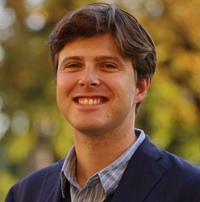 Giacomo Tagiuri
Giacomo Tagiuri is an Affiliated Scholar at the Center for Constitutional Studies and Democratic Development, a Max Weber Fellow at the European University Institute as well as an Emile Noël Fellow at New York University School of Law (remotely). He obtained a Ph.D. in Legal Studies from Bocconi University in Milan (2018), and previously held a fellowship at the Safra Centre for Ethics at Tel Aviv University (2018/2019). He has teaching experience in several areas of public law and EU law. Giacomo's research focuses on the impact of transnational law on local markets and societies. His writing has appeared or is forthcoming in various international law reviews (e.g.
The Columbia Journal of European Law;
Revue Trimestrielle de Droit Européen;
European Journal of International Law).
Giacomo holds degrees from the University of Bologna (Laurea Magistrale in Law, 2011), and the Johns Hopkins School of Advanced International Studies (SAIS) (M.A., 2013). He has been collaborating with the CCSDD in various capacities since he was a Master's student at SAIS. His work at CCSDD has focused on British constitutionalism and British politics especially with regard to EU-related issues. This line of research resulted in a series of articles and book chapters on topics such as British constitutional history, devolution, and British accession to the EU, including through co-authorships with CCSDD director Justin Frosini.
 Svetlana Chetaikina
Svetlana Chetaikina is an Affiliated Scholar at the Center for Constitutional Studies and Democratic Development, as well as a PhD candidate at the University of Padova. Her current research is related to international electoral standards. Svetlana holds an LL.M. degree in Comparative Constitutional Law from Central European University. She has considerable practical experience in the fields of constitutional and electoral law. She has participated in about a dozen of international election observation missions as a legal and election analyst in Central and Eastern Europe, South Caucasus, Western Balkans, and Central Asia. She has authored articles on suffrage rights and international standards for democratic elections. Svetlana has taught courses and workshops on election observation and assistance.
Contact:
svetlana.chetaikina@phd.unipd.it
 Alexandra Malangone
Alexandra Malangone is an Affilliated Practitioner at the Center for Constitutional Studies and Democratic Development, as well as Slovak lawyer, specialised in immigration and asylum law, and a former member of the Council of Europe GRETA committee (2008-2016). Since 2012, she worked as a Senior Lawyer at Human Rights League, a prominent Slovak NGO, leading its work in addressing nexus between human trafficking and migration. She holds Masters degree in International and European Law from the Utrecht University in the Netherlands (2002), and Masters degree in International Cooperation and Development from the University of Pavia (2005) where she was a recipient of two Academic Excellence Scholarships. Alexandra is a 2016 US State Department International Visitor Leadership Program in Trafficking in Persons Alumni. NGO Human Rights League, where she had worked is a holder of Human Rights Defender Award (2013) awarded by the US Embassy in Bratislava, Orange Foundation 2016 Award, People in Need 2016 Award. Apart from joining the CCSDD as an Associate Practitioner, she regularly consults for the OSCE, OSCE/ODIHR, UNODC, UNHCR, Council of Europe, ECPAT, EU Fundamental Human Rights Agency, and the Municipality of Venice Numero Verde Anti-tratta.
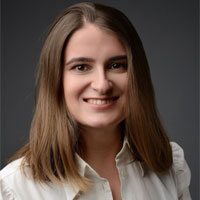 Viktoria Lapa
Viktoria Lapa is an Affiliated Scholar at the Center for Constitutional Studies and Democratic Development, as well as an Associate Fellow at SAIS Europe, a Lecturer at Bocconi University, Milan and a Guest Lecturer at the University of Bologna. Previously she was Visiting Research Fellow, Lauterpacht Center for International Law, University of Cambridge (2018); Researcher, Max Planck Institute for Comparative Public and International Law (2017-2018); Junior Lawyer at Dentons, Ukraine (2014-2015); and Public Prosecutor in Ukraine (2011-2012). She received her PhD in Law from Bocconi University and was awarded an LL.M. from the University of Barcelona and Maastricht University. Viktoriia has published in areas of international trade law and constitutional law of Ukraine. Her recent publication includes a co-authored with Justin O.Frosini chapter on the historical and legal significance of the constitutional preamble of Ukraine in Comparative Constitutional History published by Brill in 2020.
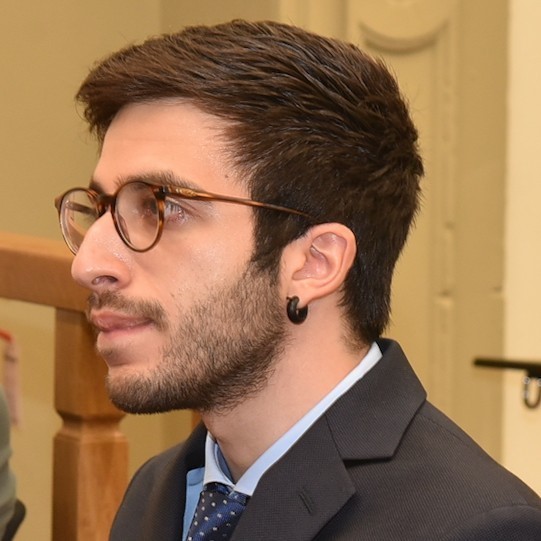 Taysier Roberto Mahajnah
Taysier Roberto Mahajnah is an Affiliated Researcher at the Center for Constitutional Studies and Democratic Development. He holds a degree from the University of Bologna (Laurea Magistrale in Law, 2021). His thesis "Corti Costituzionali e Decadimento Democratico: Ungheria e Turchia a Confronto" (Constitutional Courts and Democratic Decay: Hungary and Turkey in Comparison) focuses on the new ways through which illiberal regimes are deteriorating the democratic predicates. He has been collaborating with the CCSDD since 2018 as Research Assistant and published an article on the CCSDD blog entitled: "The Rojava Experiment: Ideological Manifesto or New Legal Order?" aimed to explore the democratic experiment developing in Syrian Kurdistan since 2014. He is currently a student of the Legal Theory LL.M. at the European Academy of Legal Theory at the Goethe University, Frankfurt.
 Giovanna Tieghi
Giovanna Tieghi, is an Affiliated Research Fellow at the Center for Constitutional Studies and Democratic Development. Qualified with the National Qualification (ASN) for Ass. Prof. in Comparative law (12/E2), is an Adjunct Professor of ELP -
Global English for Legal Studies at the University of Padua, Law School, Italy, an Academic Fellow at Bocconi University (Milan), Department of Legal Studies, teaching the Course of
Introduction to the Legal System. She is also an Assistant Professor of Comparative Public Law (at SPIGI), Public Comparative Law, Constitutional Law, Constitutional Justice, and Public Law (at DiPIC) at the University of Padua, Law School and a member of examining commissions for advancement.
On behalf of the Department (DiPIC), she is the Scientific Coordinator of the Spring Law Schools held in Washington-DC planned in cooperation with the US Supreme Court, and she is responsible (and a member) for Research Projects with foreign legal systems (South Africa, Germany-Kongo, Australia, Ecuador).
She is the author of a book in Italian on citizen's rights and fiscal policy in the contemporary constitutional State (the Partner-Taxpayer), and a forthcoming book in English on the role of High Courts' Justices in contemporary transitional democracies, as well as several articles in refereed and other journals and book chapters in English and Italian. She is also the editor of Legal Volumes in the field of comparative constitutional law. Her main academic fields of interest are Law and Justice, regionalism, federalism, devolution and tax policy, and the constitutional value of the cities.
Member of National and International Research Groups, among which the
International Association of Constitutional Law (IACL) and two Research Groups
Constitutionalism and the Cities (Scientific Coordinators: prof. B. Gussen and M. Pieterse) and
Constitutionalism in Illiberal Democracies (Scientific Coordinators: prof. J. O. Frosini and prof. R. Ramirez Calvo - IACL), member of Scientific Reviews Committee and National Reporter of the IBFD
Observatory on the Protection of Taxpayers' Rights (OPTR) in Amsterdam, she is also a speaker and chair at various national and international conferences, seminars, workshops and invited lectures. Additionally, she is a lecturer at the Legal Training School of the Italian Bar Association for the Module of Constitutional law and Legal Ethics.
Tieghi is a lawyer admitted to the Bar Association of Padua
Steering Committee
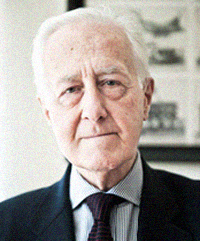 Giuseppe de Vergottini
Giuseppe de Vergottini is a member of the Johns Hopkins University Advisory Board and is the co-funder of the CCSDD. He is Emeritus Professor of Constitutional Law at the Faculty of Law of the University of Bologna. Prof. de Vergottini is a world renowned constitutional scholar and is an expert in the fields of: comparative constitutional law, national security and emergencies, Government - Parliament relations, constitutional reform and federalism.
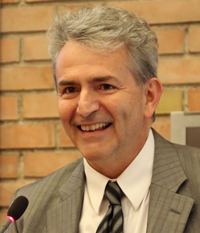 Michael G. Plummer
Michael G. Plummer is director of Johns Hopkins University, SAIS Europe, and ENI Professor of International Economics. He was head of the Development Division in the Trade and Agriculture Directorate of the Organisation for Economic Co-operation and Development (OECD) in Paris (2010-2012) and associate professor of Economics (with tenure) at Brandeis University (1992-2001). He is editor-in-chief of the Journal of Asian Economics (Elsevier) and has been adviser/consultant to many international organizations, including the Asian Development Bank and the ASEAN Secretariat. Plummer is an alumnus of SAIS Europe.
Current Research Projects
The Birth and Consolidation of Italian Democracy
Main Researcher: Prof. Mark Gilbert
The aim of this project is to examine the emergence of Italian democracy between 1943 and 1963. Italy is a fascinating case study of a country that successfully made the transition from Fascism to parliamentary democracy during years of great international tension. The project is interested in studying Italy's transition to democracy from the perspective of constitutional, intellectual and party political history, but it will also integrate social history perspectives and the history of women. Italian democratization depended on the parallel construction of the foundations of the project of greater European economic cooperation. Italy's role in the first decade of European integration is accordingly an important feature of the project. An important aspect of the project is to build bridges between SAIS Europe and Italian scholars and researchers. The project was inaugurated on 23rd June 2022. Read more.
Europeanisation and Legal Reforms in the Western Balkans
Main Researcher: Dr. Marko Milenkovic
Countries of the Western Balkans (WB) have gone the long way of democratic transition, constitutional change, legal reforms and Europeanisation during the two decades long EU integration process. As the transformation of the region is mainly driven by the influence of the European Union and its conditionality policy, the project concentrates on the specificities of the current phase of integration, impediments and challenges that WB institutions and public administration are facing, thus aiming to provide academic analysis and policy proposals for their empowerment.
The project specifically aims to explore the consequences of the EU enlargement fatigue on reforms processes in the WB societies and look into strategies for further reforms in the context of unsecure EU membership prospects. The project is particularly looking into different modes of engagement of the EU with the Western Balkans in the context of the differentiated integration. Read more.
Democracy and Constitutionalism in Central Asia
Main Researcher: Dr. Carna Pistan
The project on "The Role of Constitutional Courts in the Challenges to Democratization and Protection of Human Rights in Central Asia" aims to examine the progress made during the last two decades by the five former Soviet Union republics of Central Asia in their efforts to introduce democratic reforms and to identify the major obstacles they have encountered up to now. In addressing this topic a special evaluation is made of the contribution offered to these efforts by Constitutional Courts and the functions and tasks assigned to these constitutional adjudication bodies in further strategies for democratization and protection of human rights. The study on the role played by Central Asian Constitutional Courts is particularly relevant because the outcomes of the research could shed light on problems and obstacles that countries may encounter during the democracy building process not only in the post-Soviet Union sphere but also in other regions that seem hostile to democratization such as Asia and the Middle East. Thus, a successful democratic transition in Central Asia may also serve as a model to nearby countries that face the same challenges. Read more.
Elections in European Conditionality. Transitions and Established Democracies
Main Researcher: Dr. Sara Pennicino
The Treaty of Lisbon has given a higher profile to the principles under which the EU acts: democracy, the rule of law, human rights and fundamental freedoms, respect for human dignity and the principles of equality and solidarity. All external actions of the Union, including those aimed at enhancing democracy outside the Union, are now coordinated under the EU external action. In particular, support to elections takes the form of electoral assistance projects and EU election observation missions. These are independent but complementary activities implemented through different financial instruments (geographic funds for electoral assistance and centrally managed EIDHR funds for observation missions) acting in the context of a strategic approach on electoral assistance elaborated by the EU Commission. The focus is placed on the support to the institutional capacity of EMBs and the long-term needs of civil society, rather than supporting ad hoc projects aimed at specific electoral events. Read more.
Transitional Law and the Challenge of the Arab Spring
Main Researcher: Dr. Francesco Biagi
The so-called "Arab Spring" involves several countries characterized by geographical proximity, similar culture and religion and, until recently, an authoritarian (or semi-authoritarian) regime. Through a legal analysis of the processes of transition in the countries of North Africa involved in this process (i.e. Morocco, Tunisia, Libya, Egypt and Algeria), the project aims at identifying the reasons why these countries, despite the analogies mentioned above, have chosen different constitutional paths to try to abandon the previous regimes and attempt to establish a democratic State. Thus, the legal analysis represents an instrument to give political answers to the processes taking place in the Arab countries of North Africa. Read more.
Constitutional History: Comparative Perspectives
Sponsored by:
University of Illinois College of Law, University of Bologna School of Law, Center for Constitutional Studies and Democratic Development, Accademia delle Scienze dell?Istituto di Bologna
While comparative constitutional law is a well-established field, less attention has been paid so far to the comparative dimensions of constitutional history. The Illinois-Bologna Conference on Comparative Constitutional History aims to address that shortcoming by energizing the study and analysis of constitutional history from comparative perspectives. The Conference has several interrelated goals. It will provide a forum for presentation and discussion of current research on issues of constitutional history that crosses national boundaries. Relevant topics in this regard include such things as the origins of constitutional governments in different nations, changes in constitutional structures over time, comparative studies of the shifting roles of constitutional actors, the development of individual rights in different systems, and the legitimacy and longevity of constitutions in various nations. Read more.
Constitutionalism in Illiberal Democracies
Research Group of the International Association of Constitutional Law (IACL)
This research group on "Constitutionalism in Illiberal Democracies" of the International Association of Constitutional Law (IACL) addresses in comparative perspective the modern current of illiberal constitutionalism and the challenges it poses on accepted notions of constitutional law. The research group will also include the analysis of past examples, in order to explore similarities, identify possible patterns of authoritarian 'constitutionalism' and draw lessons which may help to better understand this phenomenon. Read more.
Celebrating German Constitutionalism - 100 years of German constitutions and their challenges
Main Researcher: Jonas Präfke & Miriam Siemes
This year, Germany celebrates the 100th anniversary of the Weimar Constitution and the 70th anniversary of its Basic Law. To commemorate its constitutionalizing and democratization process, it is due time to reflect on the lessons learned from Germany's experiences. This leads to important research questions: How have the lessons of the Weimar Republic shaped the German Basic Law of 1949? How does the Basic Law still shape the political debates today? Have Germany's experiences been similar to other world?s regions and broader issue areas? Ultimately, this project hopes to contribute to a debate aimed at raising awareness of the difficulties of state-building processes and the need for continuity and protection of core laws and norms while allowing to adapt to new challenges. Read more.
The Azadi Project
The Center for Constitutional Development and Democratic Studies funds and assists the organization of The Azadi Project aiming to empower refugee women and girls in Europe to facilitate their integration into host communities and local labour markets.
Azadi means freedom or liberation in Hindi, Urdu and Farsi. The Azadi project is based on the principles of freedom, integration and dignity. By offering digital skills, Azadi helps female refugees to pursue educational or employment opportunities that contribute to their future livelihoods - beyond the borders where they come from and where they currently reside. Read more.
The Courts, the People, and the Lifeblood of Democracies
Main Researcher: Dr Giovanna Tieghi
The project deals with the persistent dilemma between law and life (US Justice O.W. Holmes) in contemporary democracies: specifically, focusing on the Law and Justice field, the aim is to investigate the role of contemporary Justices of High Courts worldwide, evaluating the way they can shape democracies. Using a comparative perspective and methodology, the project questions the updated relevance of the 'service tool' through the analysis of the Justices' attitudes, activities, and choices in using the Law to serve the People. Read more.
Publications
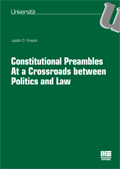 F. Biagi, European Constitutional Courts and Transitions to Democracy, Cambridge University Press, Cambridge (series "ASCL Studies in Comparative Law"), 2020, pp. 1-254.
F. Biagi, European Constitutional Courts and Transitions to Democracy, Cambridge University Press, Cambridge (series "ASCL Studies in Comparative Law"), 2020, pp. 1-254.
This book brings together research on democratization processes and constitutional justice by examining the role of three generations of European constitutional courts in the transitions to democracy that took place in Europe in the twentieth century. Using a comparative perspective, the author examines how the constitutional courts during that period managed to ensure an initial full implementation of the constitutional provisions, thus contributing - together with other actors and factors - to the positive outcome of the democratization processes.
European Constitutional Courts and Transitions to Democracy provides a better understanding of the relationship between transitions to democracy and constitutionalism from the perspective of constitutional courts. The volume was originally published in Italian (
Corti costituzionali e transizioni democratiche. Tre generazioni a confronto, il Mulino, Bologna, 2016, pp. 1-308).
 F. Biagi, J.O. Frosini, J. Mazzone (eds), Comparative Constitutional History. Volume 1: Principles, Developments, Challenges, Brill, Leiden, 2020, pp. 1-285.
F. Biagi, J.O. Frosini, J. Mazzone (eds), Comparative Constitutional History. Volume 1: Principles, Developments, Challenges, Brill, Leiden, 2020, pp. 1-285.
While comparative constitutional law is a well-established field, less attention has been paid so far to the comparative dimension of constitutional history. The present volume, edited by Francesco Biagi, Justin O. Frosini and Jason Mazzone, aims to address this shortcoming by bringing focus to comparative constitutional history, which holds considerable promise for engaging and innovative work along several key avenues of inquiry. The essays contained in this volume focus on the origins and design of constitutional governments and the sources that have impacted the ways in which constitutional systems began and developed, the evolution of the principle of separation of powers among branches of government, as well as the origins, role and function of constitutional and supreme courts.
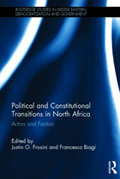 Justin O. Frosini and Francesco Biagi (eds), Political and Constitutional Transitions in North Africa: Actors and Factors, Routledge, London, 2014
Justin O. Frosini and Francesco Biagi (eds), Political and Constitutional Transitions in North Africa: Actors and Factors, Routledge, London, 2014
The transformations which are taking place in the Arab world are dynamic processes characterised by a number of variables that one can refer to as actors and factors. The implications of the Arab uprisings are important for the world at large; the Arab world's successes, and failures, at this crucial moment may well serve as a model for other nations. Political and Constitutional Transitions in North Africa: Actors and Factors focuses on five Northern African countries - Tunisia, Egypt, Morocco, Libya and Algeria - examining specific institutions and actors participating in the political upheavals in North Africa since 2011, and placing them in a comparative perspective in order to better understand the processes at work. This book addresses issues pertinent to North African and Middle Eastern Studies, comparative constitutional law, political science and transitional studies and it contains contributions by experts in all these fields. Providing a significant contribution to the understanding of events that followed the immolation of Mohamed Bouazizi in Tunisia, this book is a valuable contribution to North African Studies, Middle Eastern Studies, Comparative Constitutional Law and Transitional Studies.
The video of the book presentation held in Washington D.C. on February 26th, 2015, can be found
here.
 J.O. Frosini, Constitutional Preambles at a Crossroads between Politics and Law, Maggioli Editore, Rimini, 2012
J.O. Frosini, Constitutional Preambles at a Crossroads between Politics and Law, Maggioli Editore, Rimini, 2012
Constitutions are often preceded by preambles that contain hortatory and sermonious language, but most legal scholars believe they are not truly operative. This book poses the question of whether that really is the case. Using the comparative method, this study endeavours to verify whether preambles are an integral part of the constitution, to what extent they are used as a tool of interpretation, whether they constitute a restraint to constitutional amendment and whether they are ever used as a true and proper parameter in constitutional review. The results indeed demonstrate that in several countries preambles have far more validity and effect than is generally recognised.
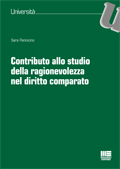 S. Pennicino, Contributo allo Studio della Ragionevolezza nel Diritto Comparato, Maggioli, Rimini, 2012
S. Pennicino, Contributo allo Studio della Ragionevolezza nel Diritto Comparato, Maggioli, Rimini, 2012
Inspired by Roscoe Pound's theory on the Materials of Judicial Decision (1923), the book addresses reasonableness as a form of scrutiny applied in Constitutional adjudication. The latter, in fact, serves as a vehicle for the ideal values of the interpreter, thus revealing the underlying spirt of Constitutions. The book opts for a comparative approach based on a historical analysis, focusing on the USSC case law of the so called Lochner era in order to prove the idea that any comparative study devoted to reasonableness as an interpretative tool should be solidly based on the verification of (historical) truth. In other words, it should aim at identifying the specific values that inspire, at a specific time and in a specific place, constitutional interpretation. Conceived to be an original contribution to the traditional Italian scholarship on the giudizio di ragionevolezza, the book is thereby written in Italian.
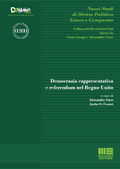 A. Torre, J.O. Frosini (eds), Democrazia Rappresentativa e Referendum nel Regno Unito, Collana del Devolution Club, Maggioli Editore, Rimini, 2012
A. Torre, J.O. Frosini (eds), Democrazia Rappresentativa e Referendum nel Regno Unito, Collana del Devolution Club, Maggioli Editore, Rimini, 2012
"Democrazia rappresentativa e referendum nel Regno Unito" [Representative Democracy and Referendums in the United Kingdom] is the first volume of the Devolution Club Series on "Nuovi studi di diritto pubblico estero e comparato": for the first time in Italy a team of experts in comparative constitutional law offers to the scientific community an in-depth and up-to-date analysis of the referendums that have taken place in the United Kingdom. The aim of the book is to show that the referendum plays a crucial role in the constitutional order of a country which has been traditionally characterized by the principle of parliamentary sovereignty, i.e. by the hegemony of the representative democracy. The volume describes the use of the referendum in the United Kingdom in different fields of national politics (i.e. European Union, devolution, electoral reforms and regionalization) and sheds light on the main constitutional, institutional and political challenges of "referendum democracy".
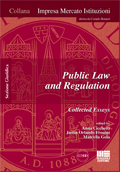 A. Cicchetti, J.O. Frosini, M. Gola (eds), Public Law Regulation. Collected Essays, Maggioli Editore, Rimini, 2011
A. Cicchetti, J.O. Frosini, M. Gola (eds), Public Law Regulation. Collected Essays, Maggioli Editore, Rimini, 2011
The relationship between public law and economics has taken on a renewed significance over recent years due to the broad range of objectives recognized as being in the public interest and pursued by national and supranational policies. This collection of essays highlights the role of public institutions with regard to issues of a general nature ranging from the use of energy resources to the regulation of banking and financial services, from respect for the environment to the protection of cultural heritage, from fiscal devolution to the role of constitutional and supreme courts in economic transitions. The essays are based on a series of seminars held at the Rimini Campus of the University of Bologna's Faculty of Economics in cooperation with the Center for Constitutional Studies and Democratic Development (CCSDD).
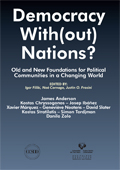 I. Filibi, N. Cornago, J.O. Frosini (eds), Democracy With(out) Nations? Old and New Foundations for Political Communities in a Changing World, Servicio Editorial de la Universidad del PaÃs Vasco, 2011
I. Filibi, N. Cornago, J.O. Frosini (eds), Democracy With(out) Nations? Old and New Foundations for Political Communities in a Changing World, Servicio Editorial de la Universidad del PaÃs Vasco, 2011
With a truly cross-disciplinary approach, this collective work examines some of the most critical challenges shaping contemporary transformations of democracy. In contrast to one-dimensional discussions prevalent in academic literature, which tend to concentrate almost exclusively on certain specific problems such as the crisis of representation, the importance of democratic deliberation, the promises of participative democracy or the implications of new technologies in democratic life, this volume discusses a wider variety of concerns. The contributors, who come from diverse fields including comparative constitutional law, political theory, international law, political geography and international relations, offer an unusual blend of heterogeneous arguments, all of which nonetheless are equally relevant for a better understanding of the current challenges of democratic politics. Going beyond the ample celebratory literature on the virtues of global cosmopolitan democracy, the contributors share, in spite of their very different backgrounds and theoretical orientations, a critical view of the many challenges that conventional understandings of democracy face today.
This book is the result of a cooperation between the University of the Basque Country and the Center for Constitutional Studies and Democratic Development (CCSDD), co-founded by the Faculty of Law of the University of Bologna and the Johns Hopkins University SAIS Bologna Center. It has been published thanks to the generous support of the George Lawrence Abernethy Endowment.
Igalo Series
All books listed below are available at CLUEB catalogue.
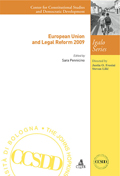 M. Milenkovic (ed), European Union and Legal Reform 2012, Clueb, Bologna, 2013
M. Milenkovic (ed), European Union and Legal Reform 2012, Clueb, Bologna, 2013
Č. Pištan (ed), European Union and Legal Reform 2011, Clueb, Bologna, 2013
F. Biagi (ed), European Union and Legal Reform 2010, Clueb, Bologna, 2013
S. Pennicino (ed), European Union and Legal Reform 2009, Clueb, Bologna, 2010
Lecture Series
The Center for Constitutional Studies and Democratic Development Lecture Series is available here.
















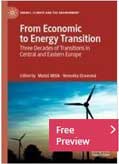
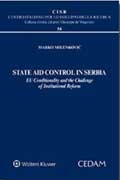
 F. Biagi, European Constitutional Courts and Transitions to Democracy, Cambridge University Press, Cambridge (series "ASCL Studies in Comparative Law"), 2020, pp. 1-254.
F. Biagi, European Constitutional Courts and Transitions to Democracy, Cambridge University Press, Cambridge (series "ASCL Studies in Comparative Law"), 2020, pp. 1-254.  F. Biagi, J.O. Frosini, J. Mazzone (eds), Comparative Constitutional History. Volume 1: Principles, Developments, Challenges, Brill, Leiden, 2020, pp. 1-285.
F. Biagi, J.O. Frosini, J. Mazzone (eds), Comparative Constitutional History. Volume 1: Principles, Developments, Challenges, Brill, Leiden, 2020, pp. 1-285.  Justin O. Frosini and Francesco Biagi (eds), Political and Constitutional Transitions in North Africa: Actors and Factors, Routledge, London, 2014
Justin O. Frosini and Francesco Biagi (eds), Political and Constitutional Transitions in North Africa: Actors and Factors, Routledge, London, 2014 J.O. Frosini, Constitutional Preambles at a Crossroads between Politics and Law, Maggioli Editore, Rimini, 2012
J.O. Frosini, Constitutional Preambles at a Crossroads between Politics and Law, Maggioli Editore, Rimini, 2012 S. Pennicino, Contributo allo Studio della Ragionevolezza nel Diritto Comparato, Maggioli, Rimini, 2012
S. Pennicino, Contributo allo Studio della Ragionevolezza nel Diritto Comparato, Maggioli, Rimini, 2012 A. Torre, J.O. Frosini (eds), Democrazia Rappresentativa e Referendum nel Regno Unito, Collana del Devolution Club, Maggioli Editore, Rimini, 2012
A. Torre, J.O. Frosini (eds), Democrazia Rappresentativa e Referendum nel Regno Unito, Collana del Devolution Club, Maggioli Editore, Rimini, 2012 A. Cicchetti, J.O. Frosini, M. Gola (eds), Public Law Regulation. Collected Essays, Maggioli Editore, Rimini, 2011
A. Cicchetti, J.O. Frosini, M. Gola (eds), Public Law Regulation. Collected Essays, Maggioli Editore, Rimini, 2011 I. Filibi, N. Cornago, J.O. Frosini (eds), Democracy With(out) Nations? Old and New Foundations for Political Communities in a Changing World, Servicio Editorial de la Universidad del PaÃs Vasco, 2011
I. Filibi, N. Cornago, J.O. Frosini (eds), Democracy With(out) Nations? Old and New Foundations for Political Communities in a Changing World, Servicio Editorial de la Universidad del PaÃs Vasco, 2011 M. Milenkovic (ed), European Union and Legal Reform 2012, Clueb, Bologna, 2013
M. Milenkovic (ed), European Union and Legal Reform 2012, Clueb, Bologna, 2013 
